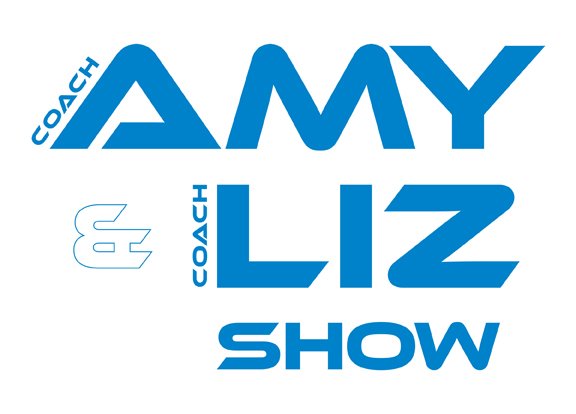ENDURANCE ATHLETES REQUIRE PROTEIN! Part 2
Coach Amy’s favorite smoothie - it’s always better poolside after a hard workout :)
What is this episode about?
INTRO 0-3:25
Amy tries Liz’s favorite protein bar.
What is Protein?
Protein is made of amino acids. Amino acids are building blocks for building and repairing. There are 20 amino acids. Eleven of these our body can produce. Nine of these are essential amino acids, meaning our body doesn’t naturally make them, and we must get them from food.
Nine essential amino acids: histidine, isoleucine, leucine, lysine, methionine, phenylalanine, threonine, tryptophan, and valine
Complete proteins contain all nine essential amino acids our body doesn't naturally make. The rule of thumb is that animal proteins, such as meat, fish, dairy, and eggs, are complete. A few plant proteins, such as chia seeds, quinoa, and soy, are also complete.
Whey protein powder is the best source of essential amino acids for a smoothie. If you go for pea protein because you have some dietary restrictions, like being vegan, be sure you are getting methionine and cysteine from food like sunflower seeds and black beans, for example.
All About Collagen!
Collagen is a protein made up of proline, glycine, and hydroxyproline. It has many important functions in the body. There are five types of collagen, each responsible for a different function. Types I, II, and III are the biggest concern for endurance athletes as they are responsible for the integrity of bone, tendons, ligaments, cartilage, muscles, and arteries!
We produce less collagen after age 30, and what we create is of lesser quality as we age. This is a key issue for endurance athletes.
Vitamin C. Vitamin C is found in oranges, strawberries, bell peppers, broccoli, Brussels sprouts, and potatoes.
Proline. Proline is found in mushrooms, cabbage, asparagus, peanuts, wheat, fish, egg whites, and meat.
Glycine. Glycine is found in red meats, turkey, chicken and pork skin, peanuts and granola.
Copper. Copper is found in liver, lobster, oysters, shiitake mushrooms, nuts and seeds, leafy greens, tofu and dark chocolate.
Zinc. Zinc is found in oysters, red meat, poultry, pork, beans, chickpeas, nuts, broccoli, green leafy vegetables, whole grains and milk products.
Stop eating refined carbs and sugar! They cause collagen to become weak, dry, and brittle.
Putting it into Practice.
Protein: 2g of protein/kg of body weigth/day. Take it throughout the day, not in one setting. Best to have largest dose in the morning.
Collagen: 20-30g hydrolyzed collagen (gelatin) + 50mg vit C, 30-60 min before exercise. Start with less to test your tummy. If it upsets your stomach, try taking it in after a workout. Be sure not to heat your vit C - it will break down.
Foods are always better than supplements. Diversity of food is best!
Choose what is practical and sustainable, and don't worry about going for perfection!
In our next episode, we outline the side effects and signs of taking in too much protein.
Source Links:
Becca McConville Sports Nutrition Specialist - https://beccamcconville.com
Amy Inman-Felton, RDN, LD, provided several research articles for us to read.
Clean label project recommendations for whey protein powders.
Research Articles
Yoshimura M, Aoba Y, Watari T, Momomura R, Watanabe K, Tomonaga A, Matsunaga M, Suda Y, Lee WY, Asai K, Yoshimura K, Nakagawa T, Yamamoto T, Yamaguchi H, Nagaoka I. Evaluation of the effect of a chicken comb extract-containing supplement on cartilage and bone metabolism in athletes. Exp Ther Med. 2012 Oct;4(4):577-580. doi: 10.3892/etm.2012.646. Epub 2012 Jul 24. PMID: 23170108; PMCID: PMC3501371.
Banaszek A, Townsend JR, Bender D, Vantrease WC, Marshall AC, Johnson KD. The Effects of Whey vs. Pea Protein on Physical Adaptations Following 8-Weeks of High-Intensity Functional Training (HIFT): A Pilot Study. Sports (Basel). 2019 Jan 4;7(1):12. doi: 10.3390/sports7010012. PMID: 30621129; PMCID: PMC6358922.
Shanthakumar P, Klepacka J, Bains A, Chawla P, Dhull SB, Najda A. The Current Situation of Pea Protein and Its Application in the Food Industry. Molecules. 2022 Aug 22;27(16):5354. doi: 10.3390/molecules27165354. PMID: 36014591; PMCID: PMC9412838.
Mamerow MM, Mettler JA, English KL, Casperson SL, Arentson-Lantz E, Sheffield-Moore M, Layman DK, Paddon-Jones D. Dietary protein distribution positively influences 24-h muscle protein synthesis in healthy adults. J Nutr. 2014 Jun;144(6):876-80. doi: 10.3945/jn.113.185280. Epub 2014 Jan 29. PMID: 24477298; PMCID: PMC4018950.



